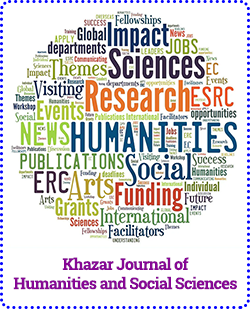Redefining Nationalism and Patriotism in Iran and Azerbaijan: Exploring Fathali Akhundzade's Modernist Perspective
DOI:
https://doi.org/10.5782/2223-2621.2024.27.4.8Keywords:
Akhundzade, Patriotism, modernity, Nationalism, Azerbaijan, IranAbstract
Fathali Akhundzade emerged as a preeminent figure among Muslim intellectuals and modernists of the nineteenth century, whose intellectual legacy profoundly impacted societies in Azerbaijan, Iran, and Turkey. For the first time, he proposed various concepts and ideas, including Islamic Protestantism, alphabet reform and modern education, as well as nationalism, ideas that are still controversial. Among his ideas, those regarding religion and patriotism have been more controversial than others, so that many scholars have offered conflicting interpretations of his ideas. For example, many in Iran consider him the founder of Persian nationalism, while others primarily in Azerbaijan and Turkey portray him as one of the earliest Turkic nationalists. This is largely due to a selective examination of his works. This article applies the conceptual history approach to focus on Akhundzade's ideas on nation, nationalism, and patriotism and by examining all his works, it challenges claims that he is the founder of Persian (sometimes Turkish) nationalism. The mentioned method analyses the content by focusing on the central concepts within the content and considering the social context surrounding the text and idea. According to the findings of the research, although some of his thoughts about pre-Islamic Iran allow a nationalist interpretation of him, he is not looking for a single-ethnic modern nationalism, but a pluralistic patriotism. Furthermore, his fundamental issue is the application of western modernity to offset the backwardness of Muslims. Patriotism is also one of the components of this modernity and Akhundzade proposes it for all the "peoples" of the "Islamic nation".
Downloads








